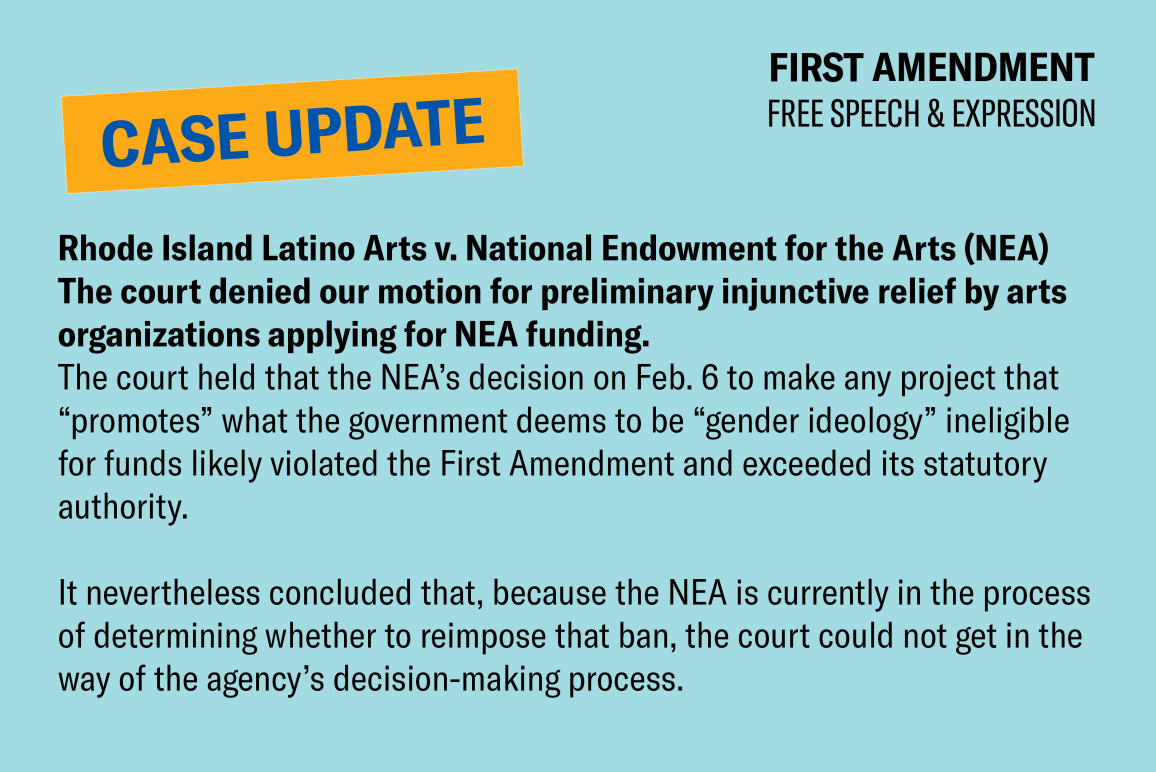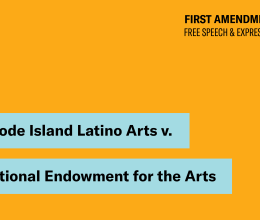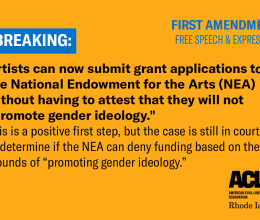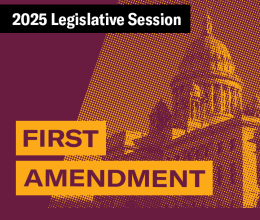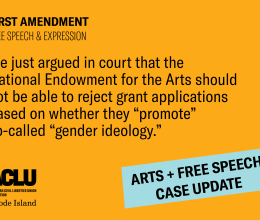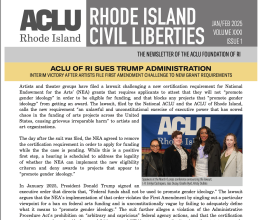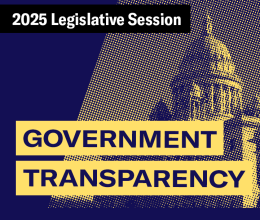Though court agreed that NEA funding bar for projects that promote “gender ideology” would likely violate the First Amendment, court refused to expressly block the NEA from reimposing that bar
The U.S. District Court in Rhode Island today denied a motion for preliminary injunctive relief by arts organizations applying for National Endowment for the Arts (NEA) funding. The court held that the NEA’s decision on Feb. 6 to make any project that “promotes” what the government deems to be “gender ideology” ineligible for funds likely violated the First Amendment and exceeded its statutory authority. It nevertheless concluded that, because the NEA is currently in the process of determining whether to reimpose that ban, the court could not get in the way of the agency’s decisionmaking process.
“We shouldn’t need to negotiate for the right to support and uplift all artists — including transgender and nonbinary artists,” said Marta V. Martinez, executive director of Rhode Island Latino Arts. “This order fails to bring us the clarity we need to apply for funds for projects that allow Latinx artists, especially those who are queer, trans, or nonbinary, to show up as their whole selves without fear of erasure of censorship. Artistic freedom and equal dignity are fundamental to a just and vibrant society and despite today’s ruling, we will continue to create space for artists to tell their truths, challenge norms, and build bridges through their work.”
The court reminded applicants that they “now ... have this Court’s preliminary review of the merits,” and that review suggests any reimposition of the eligibility bar would be unlawful. The NEA will announce how they are planning to implement the executive order on April 30, but applications for funding are due on April 7 and may be subject to as-yet-undecided rules, including the funding bar.
“This opinion makes clear that the NEA cannot lawfully reimpose its viewpoint-based eligibility bar,” said Vera Eidelman, senior staff attorney at the ACLU. “Though it falls short of the relief we were seeking, we are hopeful that artists of all views and backgrounds will remain eligible for the support and recognition they deserve in this funding cycle and beyond.”
Steven Brown, executive director of the ACLU of Rhode Island, added: “The court’s decision will leave our clients in a state of censorial limbo. We are committed to continuing this case, defending the arts, and resisting attempts to stifle speech simply because the current administration does not like or agree with it.”
The ACLU had asked for a preliminary injunction ahead of the grant application deadline. The NEA initially imposed a certification requirement and funding prohibition in response to President Trump’s order prohibiting federal funding of anything that “promotes gender ideology.” While the NEA temporarily rescinded the attestation requirement and funding prohibition after the lawsuit was filed, the agency advised the judge that the NEA was again in the process of evaluating how the executive order would be implemented, and that the evaluation would not be completed until April 30. At that time, the NEA may retroactively apply the funding restriction to projects that have already been submitted.
“This is not the result we hoped for, but we remain hopeful that the NEA will be unable to reimpose their restrictions,” said Rose Oser, producing director of National Queer Theater. “This is just one of the administration’s many attempts to silence trans voices, but we will keep creating work that aligns with our values, and we will keep fighting on every front to defend trans rights and artistic freedom.”
“We remain steadfast in our commitment to the artists and theatres at the heart of this fight,” said Emilya Cachapero, Co-Executive Director of National and Global Programming at TCG. “This moment is about more than a single grant cycle—it’s about the future of artistic freedom in this country. We are disappointed in this decision but will continue to advocate for a theatre ecology where all voices—especially trans and nonbinary voices—are welcomed and celebrated.”
“This is just one of many steps to greater relief and there is liberation in clarity," said Giselle Byrd, executive director of The Theater Offensive. “Time is our greatest ally, and I await the result from the NEA’s decisionmaking process. We must remain vigilant, and if this executive order is reimposed, we will be back in court and fighting against the unlawful attack on the First Amendment. We do not walk away silently against injustice and silence will not protect us.”
The suit argues that the certification requirement and funding prohibition violate the Administrative Procedure Act, the First Amendment, and the Fifth Amendment.
The American Civil Liberties Union, the ACLU of Rhode Island, David Cole, and Lynette Labinger, cooperating counsel for the ACLU-RI, filed the suit in the U.S. District Court for the District of Rhode Island on behalf of Rhode Island Latino Arts; National Queer Theater; The Theater Offensive; and the Theater Communications Group.
